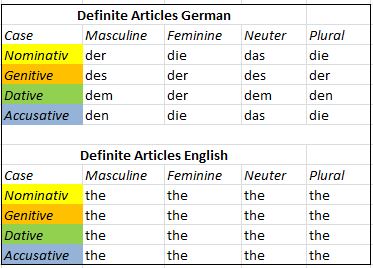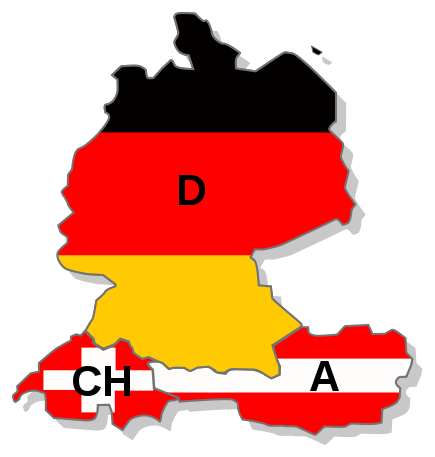Germany is one of the strongest economic markets in Europe. It’s no wonder then that many companies want to expand and take a slice of that Black Forest gateau. The key to a successful SEO and PPC campaign in Germany is to understand that it is a different country and therefore a different market. This means working with native speakers – as you’ll see in the following five points:

1. Outreach: You can’t say you to me
Relationship building is more important than ever in our industry and relationship building starts with contacting the blogger, influencer, or journalist. It all stands and falls with the outreach, and there are a few differences between English and German outreach practices.
It comes as no surprise that a language that has 16 ways to say “the” has a couple of different ways to say “you”. Whenever we do outreach in the German market, we need to ask ourselves who we are contacting: a young and hip blogger we are likely to address with “du” (you informal), whereas a middle-aged industry expert we are very likely to address with “Sie” (formal you).
 Former Federal President Heinrich Lübke (right) friendly remark: “You can say you to me”, might now not seem quite so whacky anymore.
Former Federal President Heinrich Lübke (right) friendly remark: “You can say you to me”, might now not seem quite so whacky anymore.
Conclusion: do your research and decide wisely which form of address you use. When in doubt, use “Sie” as it is the more polite and formal way.
2. Small talk = stealing time
German is one of the few direct languages in the world. Instead of wrapping information in lots of nice words, Germans just deliver it. They get to the point. Quick. This is something to bear in mind when calling or emailing somebody.
In the English speaking market, it might be polite to ask about somebody’s frame of mind or comment about the weather. In German this can be considered as a waste of time or, worse even, stealing time. Best practice for outreach in the German market is therefore to leave out any small talk and to present the purpose of the email or call directly.
3. Out of office
It can be a long process to get hold of the person you are trying to get in touch with if they work in Germany. With an average of 30 days of paid leave and (depending on the region) eight to 14 (!) bank holidays per year they are likely to be out of the office. Most bank holidays differ to the British ones, so you need to watch out or you’ll be calling and calling without realising that its actually BettaBuß- und Bettag!
In case you think about contacting someone on a Friday – think again. From about 11am GMT you are very unlikely to get hold of decision makers as they are probably on the Autobahn en route to the Austrian Alps or Amsterdam!
4. Keepaddingonewordtotheother
When two nouns meet in the German grammar, they become one. When three nouns meet, they become one, too. “Mother tongue” becomes “Muttersprache” (Mutter + Sprache), bank holiday weekend becomes “Feiertagswochenende” (Feier + Tag + Wochenende) and it gets as bad as this: “Rindfleischetikettierungsberwachungsaufgabenbertragungsgesetz” (some ridiculous beef labelling law) – seven nouns in one.
Now imagine doing PPC in German. You have 25 characters for a headline and 35 characters for description lines one and two. That takes you as far as “Rindfleischetikettierungs” or “Rindfleischetikettierungsberwachun” – not even the keyword fits! Let alone a USP or call to action. Now we luckily don’t have any clients who specialise in beef labelling law, but you get the message.

5. Not only Germany!
An important question you need to ask yourself when doing SEO and PPC in the German speaking market is which market exactly are you targeting? Austrian and Swiss people want to be called anything but German. So there are a few country specific things we need to bear in mind when working in Austria or Switzerland.
In Austria for example, it is important to address people with their titles, i.e. “Dr” or even “Magister” (equivalent to Master degree) Schwarzenegger. So put your formal pants on when entering Austria.
In Switzerland the letter “ß” (equivalent to double ss) has been abolished. This is something to look out for not only in the outreach, but also while doing keyword research or PPC. Apart from these there might be regional terms to look out for. German is the official language, but it has developed over time and some (key)words might not be the same.


